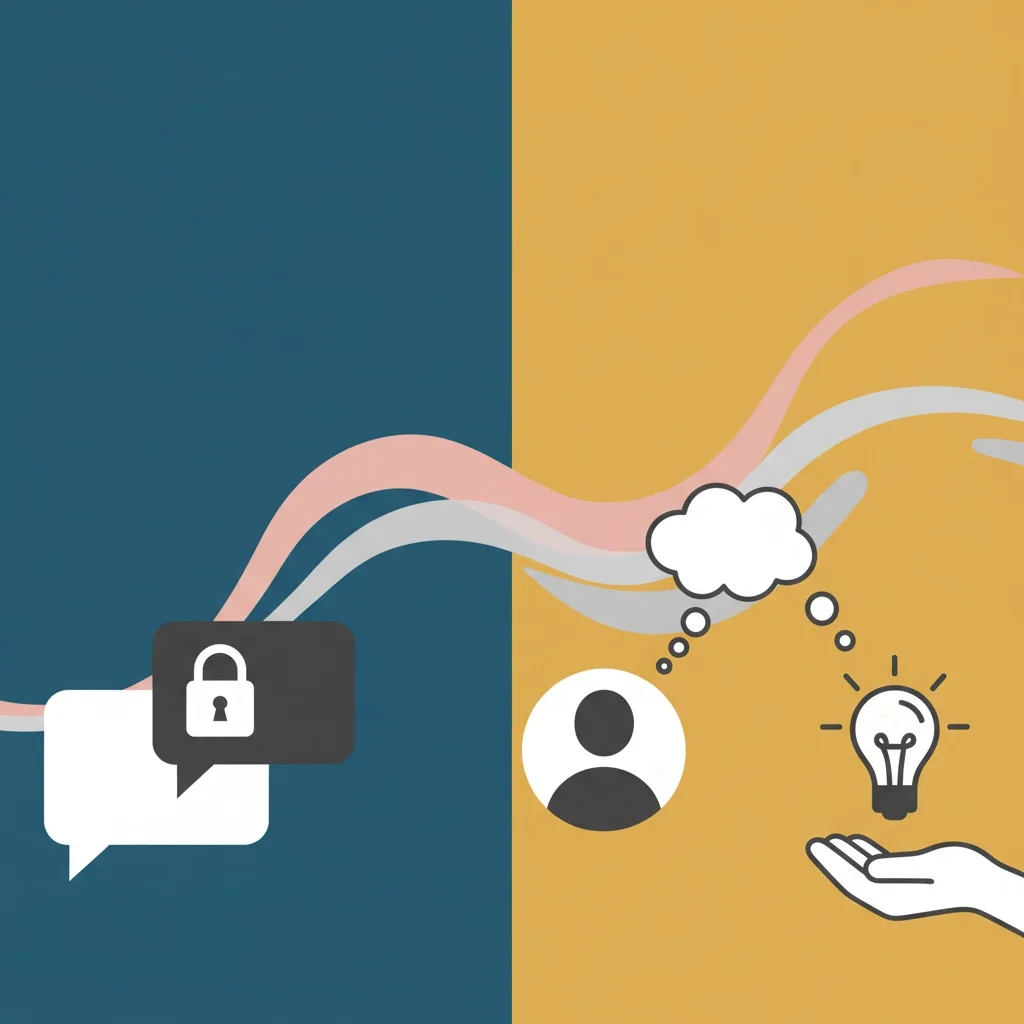Secrets Entrepreneurs Tell Off the Record
You know that confident entrepreneur on LinkedIn posting about their "incredible journey" and "crushing Q4 goals"? Yeah, well, grab a beer with them after hours and you'll hear a completely different story.
The truth is, most successful business owners are walking around with a carefully crafted public persona that's about as authentic as a three-dollar bill. Behind the polished posts and motivational quotes lies a world of insecurities, strategic facades, and uncomfortable truths that would make your head spin.
So what do entrepreneurs actually say when the cameras are off and the drinks are flowing? Let's dive into the secrets they'd never dare share publicly.
Related Podcast: Episode 23: Entrepreneur Secrets Off Record
The Confidence Game is Exhausting
Here's the thing nobody talks about: that unwavering confidence you see? It's mostly theater. Most entrepreneurs are scared out of their minds half the time, but they've mastered the art of "fake it 'til you make it."
One successful business owner put it bluntly over drinks: "I spend more time managing my anxiety than I do managing my actual business." The pressure to always appear confident, fearless, and in control is crushing. They know that showing even a hint of uncertainty could cost them customers, investors, or employees.
The reality is that behind every confident pitch deck presentation is someone who probably threw up in the bathroom beforehand. But admitting that publicly? Career suicide.
Most "Entrepreneurs" Don't Actually Have Products
This one's a real kicker. Look around at today's most vocal entrepreneurs on social media, and you'll notice something weird: half of them don't actually make or sell anything tangible.
They're coaches coaching other coaches. Consultants consulting on how to consult. Course creators teaching you how to create courses. It's like an endless loop of people selling the dream of entrepreneurship rather than solving real problems with real products.
One veteran business owner laughed when discussing this: "Back in my day, entrepreneurs built things. Now everyone's just selling access to their calendar for $500 an hour."
The dirty secret? Many of today's "successful entrepreneurs" are really just well-dressed service providers with good marketing. But try saying that at a networking event and watch the room go silent.
Ego Management is a Daily Battle
Want to know what separates the businesses that last from the ones that crash and burn? It's not funding or brilliant ideas: it's ego control.
The entrepreneurs who survive long-term are the ones who've learned to check their egos at the door. As one seasoned business owner shared: "The moment I stopped trying to be the smartest person in the room, my company actually started growing."
But here's the catch: in public, entrepreneurs are expected to be visionary leaders with all the answers. Privately, the successful ones know they need to hire people smarter than them and actually listen to their teams. Similar to how smart work-life balance strategies require admitting you can't do everything yourself.
Consistency Beats Brilliance Every Single Time
Everyone loves a good "overnight success" story, but here's what entrepreneurs won't tell you: overnight success usually takes about 10 years.
The real secret sauce isn't having brilliant ideas: it's showing up every single day, even when you don't feel like it. One business owner put it perfectly: "I'm not the smartest person in my industry, but I'm definitely the most consistent."
While everyone else is chasing the next big breakthrough, successful entrepreneurs are quietly doing the boring stuff: following up with leads, improving processes, and making small changes that create big returns over time.
But "I sent 500 follow-up emails this month" doesn't make for a very exciting LinkedIn post, does it?
The Best Ideas Come When You're Not Working
Here's something that would make every hustle culture guru's head explode: the most successful entrepreneurs know that their best ideas don't happen at their desks.
They happen during walks, in the shower, while playing with their kids, or during that random conversation at the grocery store. Innovation requires mental space, and mental space requires stepping away from work.
One entrepreneur shared: "My million-dollar idea came to me while I was walking my dog at 6 AM. I hadn't thought about work for hours." Yet publicly, these same business owners post about grinding 80-hour weeks and "hustling harder."
The truth? Working less can actually help you earn more if you're strategic about it.
Nobody Has It All Figured Out
Despite what their Instagram feeds suggest, successful entrepreneurs are making it up as they go along just like everyone else. They're constantly pivoting, adjusting, and frankly, hoping their latest strategy doesn't completely blow up in their faces.
One business owner laughed about this: "My team thinks I have some master plan, but honestly, I'm just trying not to screw things up too badly." The difference between successful entrepreneurs and everyone else isn't that they have better plans: they're just better at adapting when things go sideways.
This includes everything from handling operational challenges to figuring out when employee promotions don't work out as expected.
They Give Away Their Best Stuff for Free
Here's a strategy that sounds counterintuitive: the most successful entrepreneurs give away their best insights, tools, and advice for free. But they'll never frame it this way publicly because it sounds too calculated.
The logic is simple: if you can help someone solve a problem without them paying you anything, they'll trust you enough to pay for bigger solutions later. It's like a extended job interview that never ends.
One business owner explained it this way: "If I can help a thousand people for free and just ten of them become paying customers, I'm way ahead of the guy who tried to sell to all thousand upfront."
The Real Entrepreneurship Playbook
When you strip away all the motivational posts and success theater, entrepreneurship boils down to a few simple principles:
Show up consistently, even when you don't feel like it
Hire people smarter than you and actually listen to them
Give away value freely to build trust
Take breaks to let your brain recharge
Accept that you're making it up as you go along
The irony? These principles work precisely because they're not flashy enough for social media. While everyone else is chasing the latest growth hack or productivity system, successful entrepreneurs are quietly doing the boring fundamentals that actually move the needle.
Just like how simple time tracking improvements can have a bigger impact on your business than any fancy software upgrade, the unsexy basics of entrepreneurship often deliver the best results.
The next time you see an entrepreneur posting about their "incredible journey" or "crushing their goals," remember there's probably a more interesting and honest conversation happening over drinks somewhere. And maybe that's okay: we all need our public personas to function in the business world.
But if you ever find yourself at that bar conversation, you'll know what to listen for: the real strategies, honest struggles, and practical wisdom that actually drives success. Those are the secrets worth learning from.






